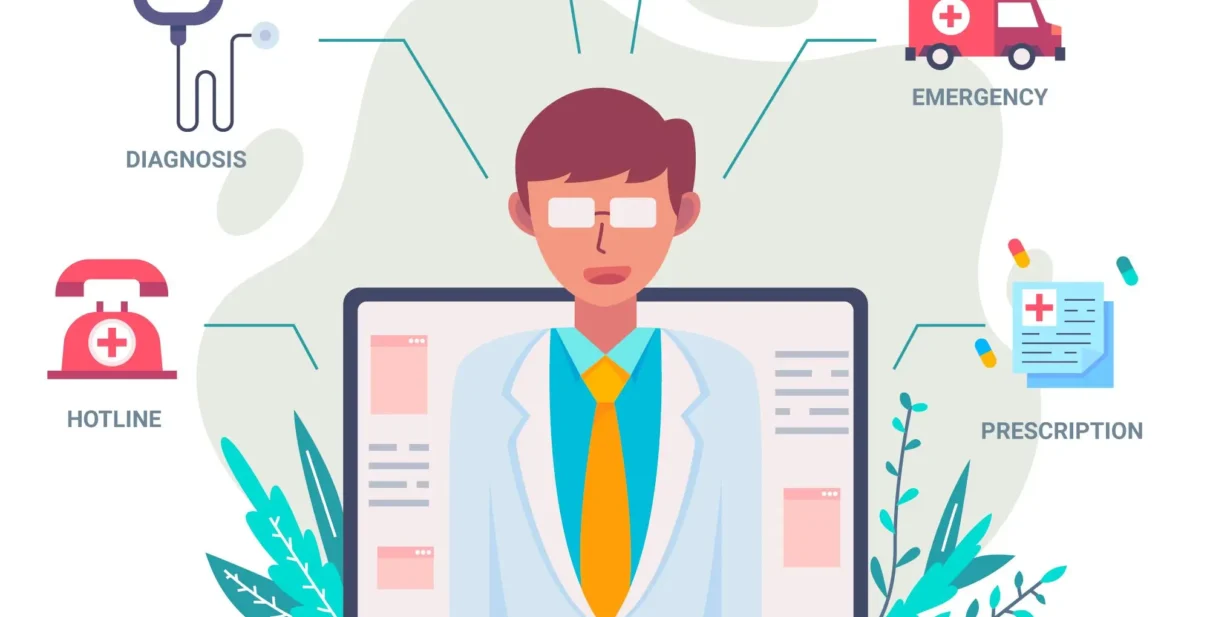Over the past few years, there has been a notable shift in the realm of clinical trials, marked by a significant transformation brought about by the rise of decentralized clinical trials (DCTs). These inventive methodologies harness the power of technology and engage local healthcare providers to facilitate direct access to patients for clinical research, departing from the conventional site-centric model. In our earlier blog, we delved into the essential features of DCTs. In this subsequent post, we will delve into the myriad advantages that decentralized clinical trials (DCTs) bring, fundamentally transforming the research landscape and enhancing both patient experiences and outcomes. Below, we outline ten benefits of incorporating virtual components into a trial.
- Alleviated load on participants:
- Reduced site visits: Participants can utilize a mobile app to report and remotely collect data, minimizing or eliminating the necessity for on-site travel. When visits are required, individuals can opt for local labs, pharmacies, or home visits with a nurse. This reduces participant dropout rates.
- Reminders and notifications: Participants receive direct alerts on their smartphones, prompting them to take medication and/or fulfill study tasks. This improves compliance to the treatment.
- Multi-media training: Training videos offer potential participants and caregivers a clearer understanding of their responsibilities, providing precise guidance on task completion.
- Sensors and devices: Integrated sensors and devices often eliminate the need for detailed patient reporting of vital signs and other measurements. This data can be made available by use of wearables.
- Enhanced adherence and sustained engagement for sponsors:
- Streamlined participant monitoring: Enhanced visibility of participants with pending tasks empowers a patient insights team to proactively assist those who may require additional support before falling out of compliance.
- Empowered and well-informed participants: DCTs can boost engagement by establishing a feedback loop that grants participants access to their individual data. This involvement fosters a sense of active participation in the trial. Furthermore, this information can be gamified to encourage participants to uphold or elevate their compliance levels compared to previous days, weeks, or fellow study participants.
- Enhanced precision to create a stronger evidence package:
- Enhanced data quality: Allowing patients to use a mobile app for real-time symptom reporting improves data capture, while decentralized clinical trials enable the integration of diverse, real-time data into a unified electronic data capture (EDC)
- Minimized missing data: Adherence to protocols and automated reporting tools reduce the chances of missing or inaccurate data entry in clinical trials.
- Timely data reporting: Real-time data collection, exemplified by pain electronic Patient-Reported Outcomes (ePRO), ensures accurate reporting close to the event, preventing memory-related inaccuracies.
- Continuous and frequent data collection: Wearables provide continuous data capture, offering a more comprehensive dataset with averages and outliers for analysis.
- Real-life insights: Home-based reporting reflects authentic behaviors, minimizing the influence of clinical settings and providing a more accurate representation of participants’ lives.
- Reduced subjectivity: Utilizing devices for data collection diminishes participant subjectivity, as exemplified by patient-friendly apps guiding users to submit objective media (photos, videos, audio) that can be evaluated by expert raters, mitigating bias risks.
- Enhanced trial delivery efficiency:
- Accelerated recruitment and enrollment: DCT achieve recruitment speeds 2 to 4 times faster than traditional trials through engaging digital advertising and streamlined online processes, reducing enrollment time from weeks to minutes or hours.
- Expedited data collection: Electronic patient reporting, aided by automatic notifications and reminders, enhances compliance, facilitating quicker study completion.
- Swift data analysis: Despite being decentralized, DCTs utilize cloud-based Electronic Data Capture (EDC) systems to centralize and manage data in real time, enabling efficient progression to the analysis phase for study teams.
- Minimized expenses associated with data gathering:
- Transferring data collection from sites to homes positively impacts study costs by eliminating the expense and inefficiency of maintaining staff at multiple sites. Virtualizing site support enables a single team to efficiently serve patients across multiple regions, while direct data entry by patients reduces the need and cost of source data verification.
- Enhanced accessibility for both patients and researchers:
- Advancements in clinical trial technology are transforming access by allowing remote participation, reaching diverse populations through digital media targeting, and enabling decentralized trials, offering academic researchers new opportunities without excessive administrative burdens.
- Safety of participants:
- Decentralized clinical trials provide real-time reporting, ensuring swift detection of adverse events through daily patient responses and automated alerts for prompt study team intervention.
- Extended post-assessment monitoring:
- Utilizing virtual tools in drug and device trials can enhance long-term study retention by easing patient burden and minimizing inconveniences associated with post-marketing follow-ups.
- Better decision making:
- Historically, sponsors could only access their data after formal interim analyses or study completion, but the enhanced efficiency of DCTs, coupled with real-time dashboards, provides sponsors with early insights, allowing for prompt reactions to challenges and expedited market entry upon positive study outcomes.
- Adjusting to external influences and responding to disasters:
- The COVID-19 pandemic underscored the limitations of conventional clinical trialsdependent on physical visits, emphasizing the advantages of decentralized trials with inherent resilience through remote monitoring and virtual visits, enabling uninterrupted progress amidst unforeseen challenges while prioritizing patient safety.
In conclusion, decentralized clinical trials offer a range of advantages, including heightened patient accessibility, improved retention rates, real-time data collection, cost-effectiveness, enhanced data quality, expedited recruitment, and resilience to external factors. Embracing these benefits not only advances medical knowledge but also accelerates therapeutic discoveries, ultimately transforming the landscape of clinical trials and enhancing the overall patient experience.

